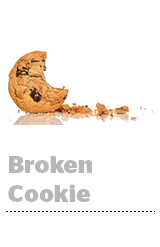 Here’s today’s AdExchanger.com news round-up… Want it by email? Sign up here.
Here’s today’s AdExchanger.com news round-up… Want it by email? Sign up here.
RIP “Super Cookie”
WebKit, the open-source browser infrastructure operated by Apple, has updated its code to prevent HSTS-based tracking. HSTS is a great feature that automatically redirects traffic to secure page connections if a person accidentally uses an insecure URL – and then remembers to directly route that user to the secure connection moving forward. Except that means storing information on a device, which means HSTS can be (and has been) fiendishly leveraged as a persistent cookie, sometimes referred as a “super cookie.” Criteo alluded to the practice in an earnings report late last year. “Attempts to mitigate this attack are challenging because of the difficulty in balancing security and privacy goals,” writes Apple software engineer Brent Fulgham in a blog post. But now the company has a solution that functionally quashes the infamous HSTS super cookie.
Add To Cart
Google initiates millions of product searches from shoppers on its search engine, and now it wants a cut of the sales. On Monday, the company launched a program called Shopping Actions for retailers to list their products as sponsored units on Google search, Google Express Shopping and Google Assistant, its voice-activated search, in exchange for a cut of sales, reports Reuters. Target, Walmart, Ulta Beauty, Home Depot and Costco have signed on to access the Google product-listing and shopping cart service – which is separate from search advertising. The move is squarely aimed at Amazon, a colossal search platform in its own right that also captures many transactions that begin as Google searches. More.
Snapping Back
Not a good month for Snap Inc.’s popularity standing. The messaging app has faced user and celebrity backlash against an unpopular app redesign and an offensive advertisement about Rihanna. The markets have responded negatively to Snap’s inflammatory news cycle, with shares dipping as much as 6% in February. But social media users aren’t as fickle as they sound. First-time downloads of Snapchat were up 18% in the month after the redesign, and more people are spending time on Discover, The Wall Street Journal reports. More. Advertisers are sticking it out as well, with eMarketer’s latest social forecast growing Snap’s share of the digital advertising market to 1% this year [AdExchanger coverage].
But Wait, There’s More!
You’re Hired!
This post was syndicated from Ad Exchanger.

More Stories
The Tuesday Club hosts Women’s Work’s In(visible) exhibition in Tāmaki Makaurau
Under Armour Taps Estée Lauder Exec to Lead AI and Analytics
Lani Jamieson joins D3 to shape the next chapter of its growth